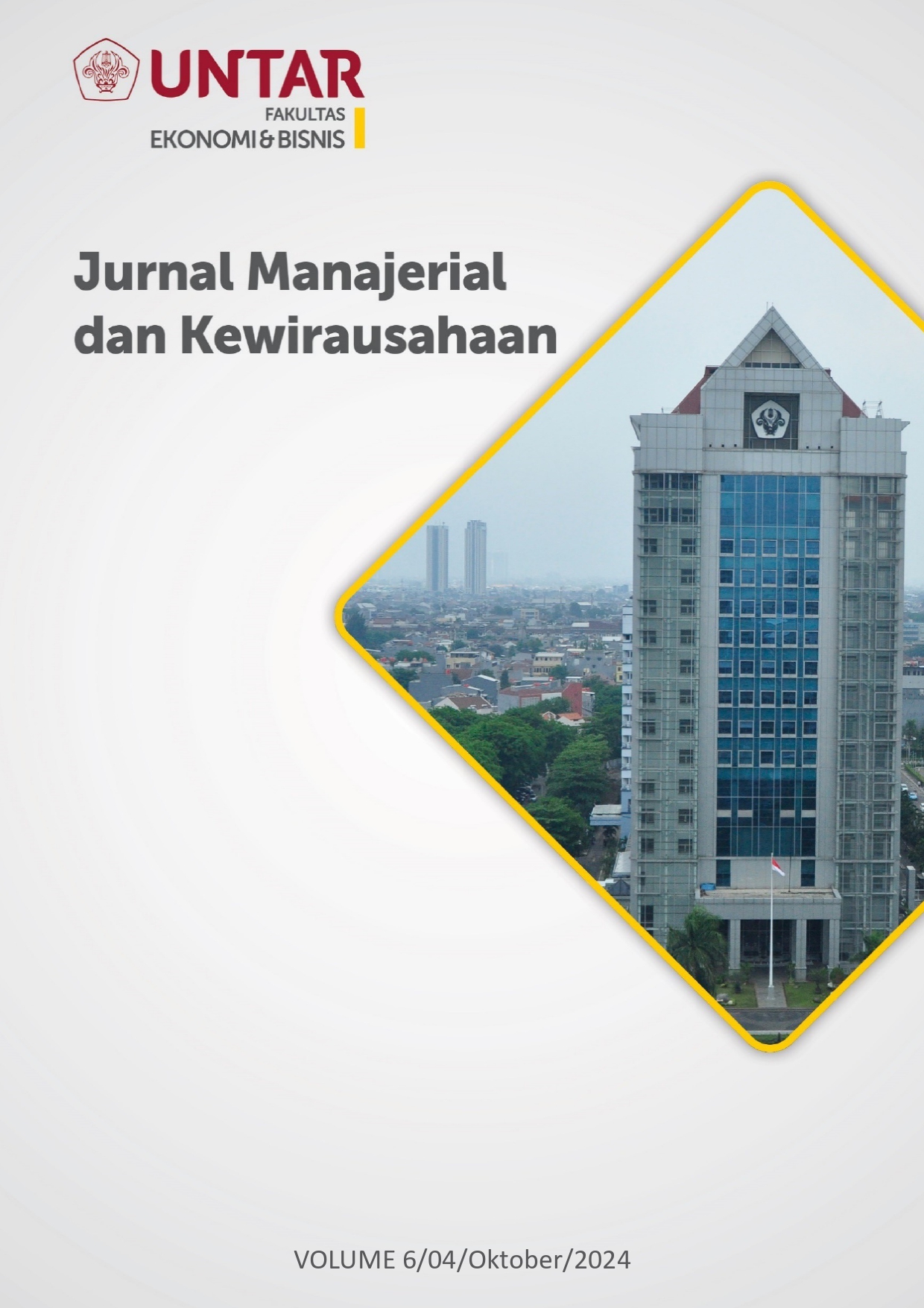Kompetensi Kewirausahaan Merupakan Jembatan Penghubung antara Pelatihan Kewirausahaan Digital dengan Niat Berwirausaha
Main Article Content
Abstract
The purpose of this study is to test the data on the influence of digital entrepreneurship training on entrepreneurial intention, with entrepreneurial competence as a mediating variable between the dependent variable and the independent variable in this study. This research is qualitative research in which all data generated comes from primary data collected by 256 respondents who have participated in digital entrepreneurship training using Google Forms to collect data. This study also uses a descriptive cross – sectional research design, which is by measuring data once at the same time. Likert scale is also used in this study with the aim of stating whether the respondents agree or not with the questions that has been given in the questionnaire. The sampling technique in this study uses non-probability sampling, namely purposive sampling, which means that only certain respondents that has passed the screening question on the questionnaire that has been distributed. Of course, in processing the data in this study, data testing is needed using SmartPLS – SEM (Partial Least Square – Structural Equation Modelling) version 4. The results obtained in this study are that 1) there is a positive and significant effect between digital entrepreneurship training on entrepreneurial intention 2) there is a positive and significant effect between digital entrepreneurship training on entrepreneurial competence 3) there is a positive and significant effect between entrepreneurial competence on entrepreneurial intention, and 4) there is a. positive and significant effect from entrepreneurial competence which becomes a bridge between digital entrepreneurship training and entrepreneurial intention.
Article Details
Section

This work is licensed under a Creative Commons Attribution-NonCommercial-ShareAlike 4.0 International License.
This work is licensed under a Jurnal Muara Ilmu Ekonomi dan Bisnis Creative Commons Attribution-ShareAlike 4.0 International License.,/p>
References
Ajzen, I. (1991). The Theory of Planned Behavior. Organizational Behavior and Human Decision Processes, 50(2), 179-211. https://doi.org/10.1016/0749-5978(91)90020-T
Alexander, S. F. & Tunjungsari, H. K. (2019). Pengaruh Mediasi terhadap Pengalaman Sebelumnya dengan Intensi Berwirausaha Sosial. Jurnal Manajerial dan Kewirausahaan, 1(3), 569-577. https://doi.org/10.24912/jmk.v1i3.5369
Christianto, A. & Tunjungsari, H. K. (2023). Faktor yang Mempengaruhi Intensi Berwirausaha dengan Bantuan Dukungan Sosial sebagai Moderasi. Jurnal Manajerial dan Kewirausahaan, 5(3). 559-567. https://doi.org/10.24912/jmk.v5i3.25333
Kraus, S., Palmer, C., Kailer, N., Kallinger, F.L. and Spitzer, J. (2019), “Digital entrepreneurship: a research agenda on new business models for the twenty-first century”, International Journal of Entrepreneurial Behavior and Research, Vol. 25 No. 2, pp. 353-375.
Moeheriono. 2012. Pengukuran Kinerja Berbasis Kompetensi. Jakarta: Raja Grafindo Persada
Pittaway, L. & Cope, J. (2007), “Simulating entrepreneurial learning: integrating experiential and collaborative approaches to learning”, Learning Management, Vol. 38 No. 2, pp. 211-233.
Priyanto S. H. 2008. Di dalam Jiwa ada Jiwa: The Backbone and the Social Construction of Entrepreneurships. Pidato Pengukuhan Guru Besar Universitas Kristen Satya Wacana.
Spencer, M. Lyle & Spencer M. Signe. (1993). Competence of Work. Kanada: John Wiley & Sons, Inc.
Tjahjono, H. K. & Ardi, H. 2008. Kajian Niat Mahasiswa Manajemen Universitas Muham- madiyah Yogyakarta untuk Menjadi Wirausaha. Utilitas Jurnal Manajemen dan Bisnis, 16(1): 46-63
Tomy, S. & Pardede, E. (2020), “An entrepreneurial intention model focussing on higher education”, International Journal of Entrepreneurial Behavior and Research, Vol. 26 No. 7, pp. 1423-1447.

